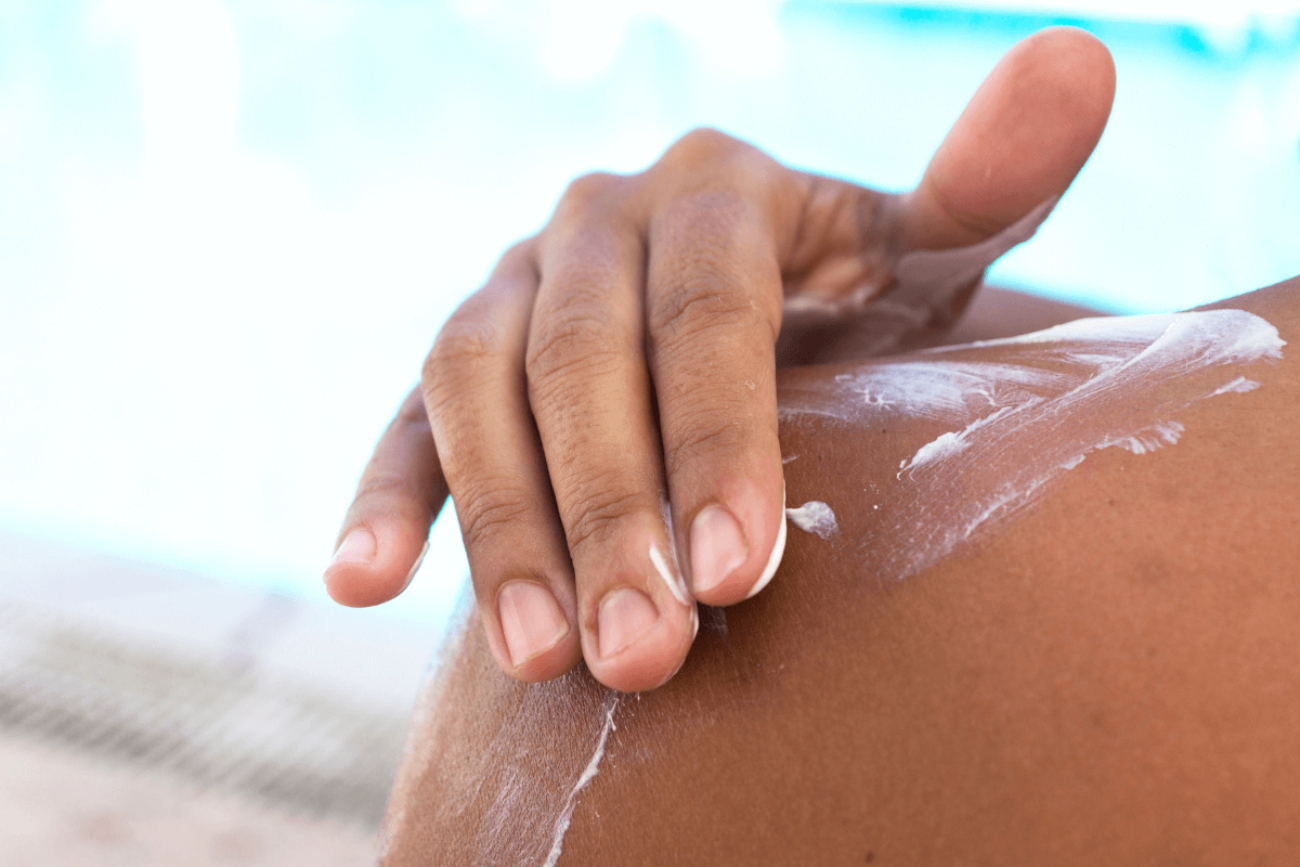In this month’s blog, Dr. Lakshi Aldredge, Dermatology Nurse Practitioner, VA Portland Health Care System, and member of the Women’s Health Advisory Council discusses the proper way to protect your skin barrier. Read on below!
Everyone knows they should protect their skin from the harmful effects of UVA and UVB exposure. The proper way to do so, however, has been the subject of much debate. The arguments are endless: “I can’t wear sunblock because I need to get my vitamin D to ward off autoimmune conditions.” “Sunscreens are killing the Great Barrier Reef in Australia.” And my all-time favorite, “I need to get a base tan so that I don’t get a sunburn on vacation.”
Regardless of the reason, we all need some practical, evidence-based data to reassure ourselves and our patients on the proper way to protect our skin this summer. Here are some practical reminders when it comes to proper sun protection supported by the the American Academy of Dermatology (AAD).
Who should practice skin protection?
EVERYONE. One in five Americans will develop skin cancer in their lifetime. Those with lighter skin, are at higher risk of developing skin cancers and sunburns, but anyone can get skin cancer regardless of age, gender, or race. All skin types are vulnerable to the harmful effects of the sun (radiation); therefore, it’s important for everyone to practice proper sun protection.
What’s the best way to tan safely?
There is no such thing as a “healthy tan” and the benefit of obtaining a “base tan” is fake news. All tanning is the result of radiation exposure and increases your risk of premature aging and skin cancer, including melanoma. The best prevention from burning is appropriate sun protection.
What type of sunscreen works best, and how much sunscreen is enough?
The American Academy of Dermatology recommends using broad-spectrum sunscreen products (protection against UVA and UVB rays) that have an SPF of 30 or higher, and are “water resistant” or “very water resistant”. Sunscreen should be applied 15-30 minutes before sun exposure and re-applied every 2 hours or after water exposure. One “shot glass” full of sunblock is an appropriate reference for adequate coverage of face, neck, ears, trunk, and extremities.
But isn’t sunscreen harmful to coral reefs?
There is some truth to the risk of coral reef damage due to sunscreen run-off although studies are limited. According to the National Ocean and Atmospheric Administration (NOAA), chemicals in some sunscreens that can harm marine life include: Oxybenzone, Benzophenone-1, Benzophenone-8, OD-PABA, 4-Methylbenzylidene camphor, 3-Benzylidene camphor, nano-Titanium dioxide, nano-Zinc oxide, Octinoxate, Octocrylene. NOAA recommends reef-safe sunscreens to avoid posing potential risk to marine life, seeking shade between 10:00am and 2:00pm, and using UPF sun wear or scuba suits to protect the skin.
Should I be concerned about the ingredients?
Sunscreens tend to have a well-established safety profile, despite data demonstrating percutaneous absorption. If you’re worried about systemic absorption, go with sunscreens that contain zinc oxide or titanium dioxide, which are mineral blockers rather than chemical.
What other ways can I protect my skin?
- Dress to protect yourself from the sun.
- Wear a wide-brimmed hat, lightweight, long-sleeved shirts, pants, and sunglasses with UV protection.
- Recognize that water, snow, and sand can reflect the damaging rays of the sun which can increase the risk of sunburn.
- Sun barrier protection using hats and clothing is safe and effective, depending on the UPF factor of the fabric. Wearing hats or bandanas that protect the ears and neck are especially useful, and sun shirts with long sleeves are now made with material that is cool and comfortable.
References:
- American Academy of Dermatology: How to prevent skin cancer (aad.org)
- Skincare Chemicals and Marine Life (noaa.gov)
- Elma D Baron, MD, (June 2020) UpToDate
- Gies P. Photoprotection by clothing. Photodermatol Photoimmunol Photomed 2007; 23:264
- Lim HW, Gilchrest BA, Cooper KD, et al. Sunlight, tanning booths, and vitamin D. J Am Acad Dermatol 2005; 52:868
- Schneider SL, Lim HW. Review of environmental effects of oxybenzone and other sunscreen active ingredients. J Am Acad Dermatol 2019; 80:266
Inhale. We've got this. Exhale.
Understanding healthcare; with us, it’s personal.


